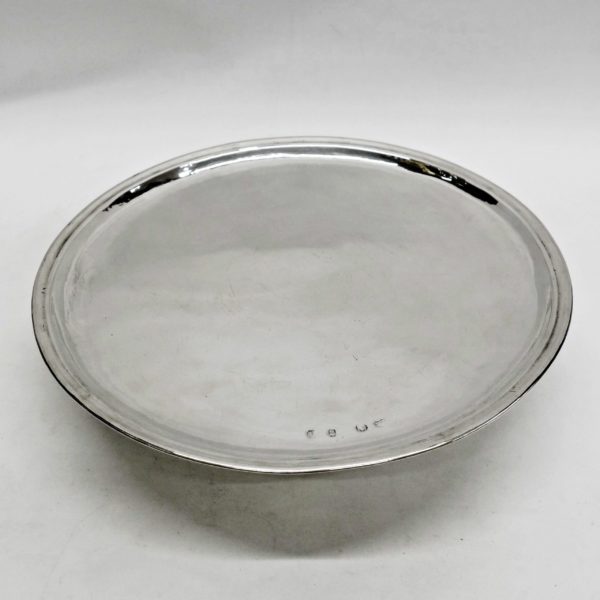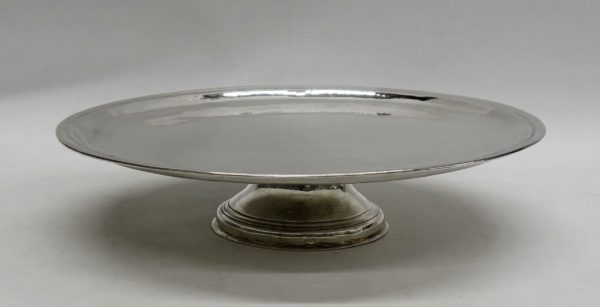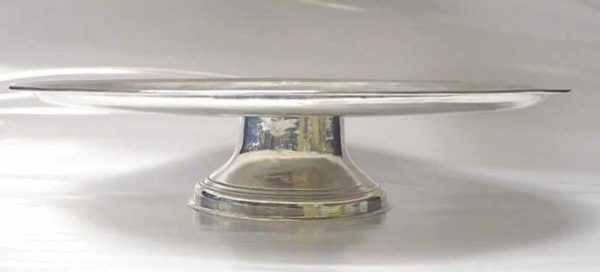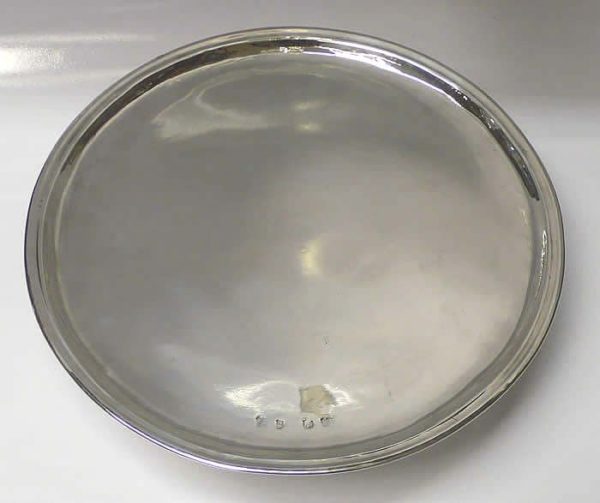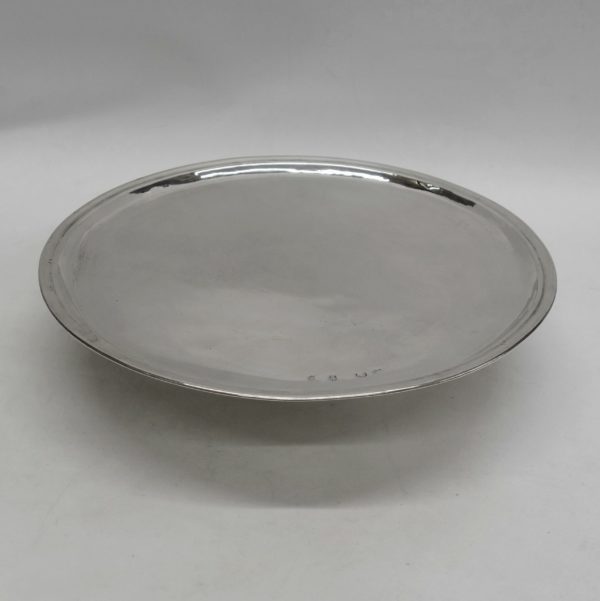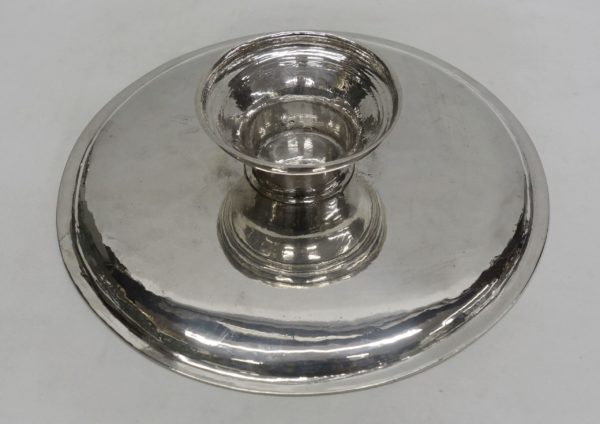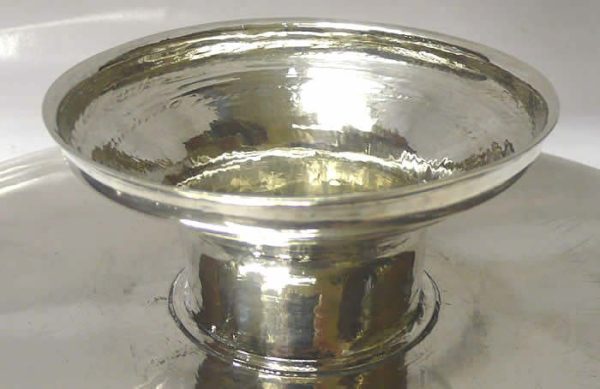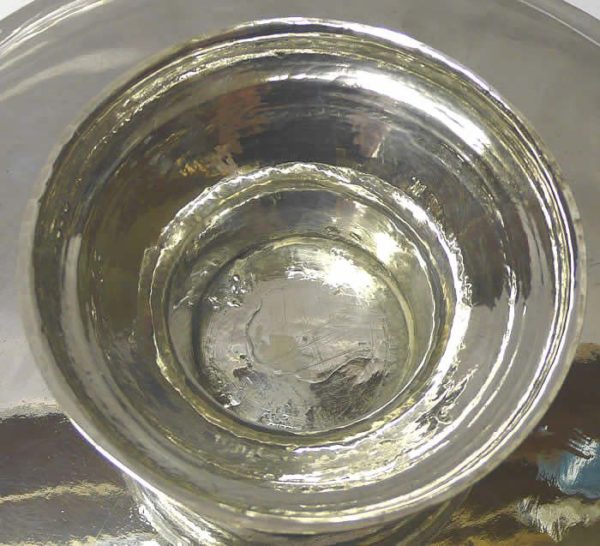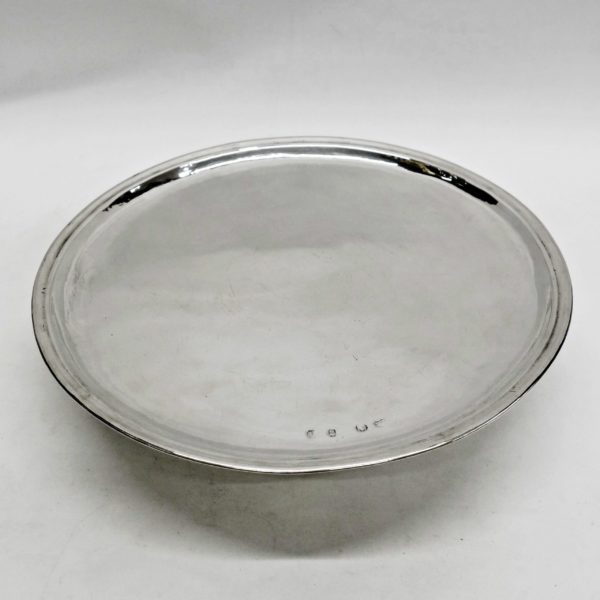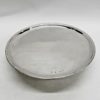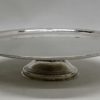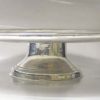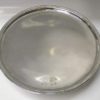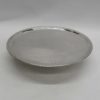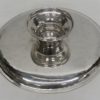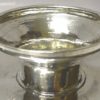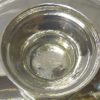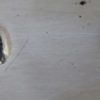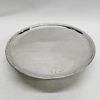Large George I Footed Salver
SOLD
Stock: 8594
Date: 1718
Maker: Richard Bayley
Country: England
An excellent early English silver tazza of plain circular form on a shaped foot. Britannia standard silver*. Lovely simple styling...
Description
Description
An excellent early English silver tazza of plain circular form on a shaped foot. Britannia standard silver*. Lovely simple styling typical of the period. Good size and patina.
Weight 723 grams, 23.2 troy ounces.
Height 6.25 cms. Diameter 29 cms.
London 1718.
Maker Richard Bayley
Literature: From the 17th century until the reign of George I, salvers (often called tazzas) were raised on a pedestal foot. By 1700 some were made with the foot unscrewing. Very occasionally this type will also have 3 or 4 feet so that the salver can be used on a lower level.
*Goldsmiths Company.
Freemen enter the Company by one of three routes:
• By Service – on completion of an indentured apprenticeship to a master who is a freeman. The apprentice will have had to bring his or her ‘masterpiece’ to the Hall for inspection by the Wardens.
• By Patrimony – for any person born after the date of a parent’s freedom, having attained the age of 25 and been elected by a Selection Committee.
• By Redemption – by application and on paying an entrance fee, having been elected by a Selection Committee.
Liverymen. A Call to the Livery is made by the Court of Assistants every two to three years, as necessary, to maintain a sufficient total within the Livery. The election process is by application and subsequent selection from the Freedom.
Assistants are elected from within the Livery. The Court of Assistants, numbering up to 33, is the governing body of the Company. Each year, four members are elected to become Wardens, who meet regularly and act as the Company’s executive committee. The senior warden is known as the Prime Warden and serves for a year, changing over in May.
The Court of Wardens and Court of Assistants are the governing bodies of the Company, with overall responsibility for its affairs. The Court of Assistants appoints the members of the 11 Committees which direct the day-to-day running of the Company. The Committee members are drawn in the main from the Livery and sometimes the Freedom; there are also co-opted advisors and Company staff who provide support to each Committee. There are always two members of the Court of Assistants sitting on each Committee, one of whom is the Chairman and they are elected indefinitely at three year intervals. Liverymen and freemen are elected initially for three years, with the opportunity to serve a further term of three years. Liverymen are also given the opportunity to experience the workings of the Committees by being invited to sit on the Committee for three years as supernumerary members.
Signed/Inscribed: *Britannia Standard. In 1696, so extensive had become the melting and clipping of coinage that the silversmiths were forbidden to use the sterling standard for their wares, but had to use a new higher standard, 95.8 per cent. New hallmarks were ordered, “the figure of a woman commonly called Britannia” and the lion’s head erased (torn off at the neck) replacing the lion passant and the leopard’s head crowned. This continued until the old standard of 92.5 per cent was restored in 1720. Britannia standard silver still continues to be produced even today.
Condition
This lovely silver salver is in very good condition with no damage or restoration. Good colour. Both pieces are stamped with good clear English silver hallmarks. The base is lion mark only which is normal for the period. Please note that this item is not new and will show moderate signs of wear commensurate with age. Reflections in the photograph may detract from the true representation of this item.
Maker Information
Maker: Richard Bayley
Richard Bayley was apprenticed to Charles Overing in 1699 and turned over to John Gibbons in 1704. Free 1706. First mark entered in 1708 at Foster Lane, London, 2nd mark 1720, third mark 1732. Warden of the Goldsmiths Company 1746-8. Prime warden 1751*. He was known for his good plain hollow-ware such as tankards, jugs, tea and coffee pots. His son, Richard, was apprenticed to Samuel Spindler in 1713.
Our Guarantee
Customer satisfaction is our primary concern
All silverware on our website is checked thoroughly prior to offering it for sale and every product listing contains a condition report and details of the silver hallmarks.
All items offered on our website include:
- Free Shipping Worldwide
- Tracked and Insured
- 14 day no quibble money back guarantee
- We are accredited members of LAPADA and conform to their strict professional standards
- We dispatch 1-3 days after receiving cleared payments
More detailed information about deliveries, returns and how to pay is available in the Help section at the bottom of this page.
